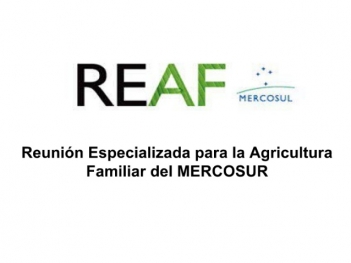The document explains the results of the Specialized Meeting on Family Farming in Mercosur.
he Specialized Meeting on Family Farming (Reunión Especializada sobre la Agricultura Familiar – REAF) has now been in existence for ten years and we can see that it has made significant contributions to building an institutional framework and public policies within Mercosur which are favourable to Family Farming.
The Regional Coordination Unit for the FIDA Mercosur CLAEH Programme has published a document summarizing and highlighting the practical advances made since the inception of the REAF.
The document (in Spanish) is entitled “Institucionalidad responsable por la agricultura familiar y políticas públicas diferenciadas en el Mercosur. Marco de actuación de la REAF” (“An institutional framework for family farming and differentiated public policies in Mercosur: Action framework for the REAF”). It explains the establishment of the REAF as a body providing advice to Mercosur’s executive bodies and describes the action it takes.
It also lists the REAF recommendations which have led to resolutions or decisions by Mercosur’s executive bodies, or which have been used as reference points for action in relation to Family Farming by the various countries’ authorities.
In addition, there is a chapter on the institutional framework for Family Farming and the differentiated public policies for the sector in each country.
REAF Mercosur
The MERCOSUR Specialized Meeting on Family Farming (REAF) provides a meeting point for family producers and rural organizations and institutions in the region. It has been in existence since 2004 with the objective of generating a set of regional public policies for Family Farming.
It is recognised as one of the most dynamic bodies in the process of regional integration and has become a platform for discussing and generating policies and for joint participatory action, bringing rural populations together to overcome inequalities through policy dialogue between government representatives and civil society.



